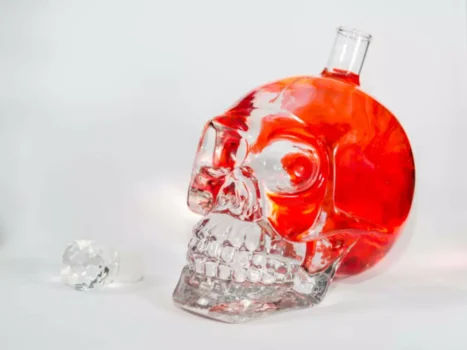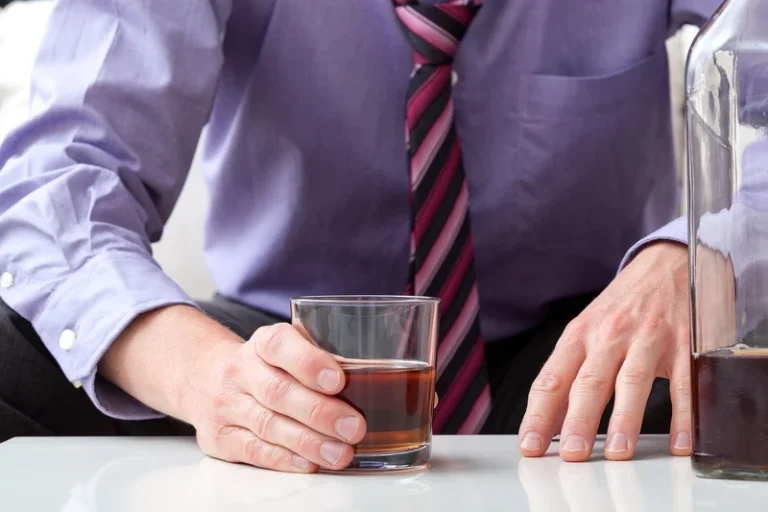
Common examples include Advil or Morin (ibuprofen) and Aleve (naproxen). If you choose to drink while taking warfarin, have the combination approved by your doctor first. If you drink alcohol frequently or drink large quantities, or if you have liver disease, let your prescriber know before treatment starts.
Morning Rounds: Getting healthier in the checkout aisle and the alcohol aisle
Coumadin is one of the most commonly used blood thinners in the U.S., but it carries a 3% to 6% risk of major bleeding. Alcohol should be avoided when taking Coumadin, as it is one of the most serious risk factors for complications with this medication. If you have atrial fibrillation, your doctor may prescribe blood thinners (especially anticoagulant medicines) as part of your treatment plan. Some people are born with a condition where their blood clots more easily than in other people.

Just how bad is alcohol? Eight experts weigh in on the risks and supposed benefits of drinking
As a side effect statins can reduce the level of platelets in your blood, suggesting these drugs might also act as mild anticoagulants. The American Heart Association (AHA) does not recommend drinking alcohol because of its risk of heart damage, including increased risk of blood clots. While moderate drinking is less dangerous than drinking alcohol on blood thinners excessive drinking, it is important to avoid drinking alcohol at all if you have concerns about your cardiovascular health or concerns about blood clots. It’s important to recognize signs of abnormal bleeding, such as nosebleeds or dark/tarry stools, which could indicate complications from mixing alcohol with blood thinners.
Drug interactions in depth

Another study found that, compared to non-drinkers, people who drank more than 3 ounces of liquor per week had a 53% higher risk of DVT. Even a minor cut may bleed a lot if you’re on these medications. If you fall or get hit hard, call your doctor or go to the hospital right away, even if there’s no blood.
Alcohol Interactions with Anticoagulants and Antiplatelet Medications
Go to the hospital immediately if you experience any of these side effects after falling or bumping your head — even if you don’t have external bleeding. Blood thinners may be taken via mouth, vein, or skin to prevent blot clots, which might cause a heart attack or stroke. But, they may have serious side effects, especially if taken with other medications.

Risks and Side Effects of Mixing Blood Thinners and Alcohol
Before starting Revlimid, talk with your doctor or pharmacist about any vaccines you may need. And during your treatment with Revlimid, talk with your doctor or pharmacist before receiving a vaccine. There are no specific reports of vitamins interacting with Revlimid. However, that doesn’t mean vitamin interactions won’t occur or be recognized in the future. Because of this, you should talk with your doctor or pharmacist before taking any vitamin product with Revlimid.
- This article explores how alcohol affects the ability of the blood to clot.
- Excessive alcohol consumption, especially binge drinking, can exacerbate these effects due to the synergistic impact it has when combined with anticoagulants.
- Factor Xa inhibitors have an anticoagulation effect by blocking factor Xa, which therefore helps decrease blood clot production.
- Sometimes, however, a blood clot can appear in an artery that supplies your heart or brain with oxygen-rich blood.
- Don’t start any new medicines or supplements without talking to your doctor first.
- Even though it could be harmful, people who struggle with alcohol abuse may find themselves combining alcohol and blood thinners even though they know they shouldn’t.
- Eliquis also has other warnings, side effects, and drug interactions.
- Since both acute and chronic pain lead to an involuntary response from the nervous system, the brain will automatically sense pain and work to stop it from harming the body.
- People who take anticoagulant medications should use herbal supplements and teas with caution.
There’s more than one kind of blood thinner, and they work in different pathways within the body. The lowest risk of CAD deaths was found in people consuming approximately one to two alcoholic equivalents. A more neutral effect was found with stroke deaths and non-fatal strokes.

This can help reduce your risk of having a heart attack or stroke if you’re at risk. Since blood thinners make you less able to form clots, if you’re taking them, be extra careful when you do anything that could increase your chance of injury and bleeding. Additionally, alcohol’s impact on the liver can lead to hematologic complications, affecting the body’s ability to manage bleeding and clotting ( source ). Blood thinners are drugs your doctor prescribes to prevent blood clots that can cause a heart attack or stroke. If your doctor has prescribed one of these medicines, it’s because you have heart disease or another condition that increases your risk for clots. Blood thinners, also known as anticoagulants, are medications designed to prevent the formation of blood clots or to inhibit existing clots from getting larger.
Blood thinner medications prevent blood from sticking together (coagulation) which increases the amount of time it … The treatment of alcohol dependency involves a variety of different methods. The National Institute on Alcohol Abuse and Alcoholism (NIAAA) and the National Institute of Health (NIH) are both trusted sources you can access to get help for yourself or a loved one. A combination of medical advice from a health care provider, social, and family support is also essential. If you drink heavily, there can be a rebound effect in that the bleeding risk increases, even after you’ve stopped drinking. When the body’s ability to clot is reduced internal vessels may begin bleeding inside the body.
Too much alcohol can contribute to many diseases of organs such as the liver, heart, and pancreas and is a factor in developing heart disease. Consuming more than two servings of alcohol every day can increase the risk of developing blood clots. When alcohol is included in the mix, it can alter how thin your blood is and also change how active the medication is.
Leave a Reply